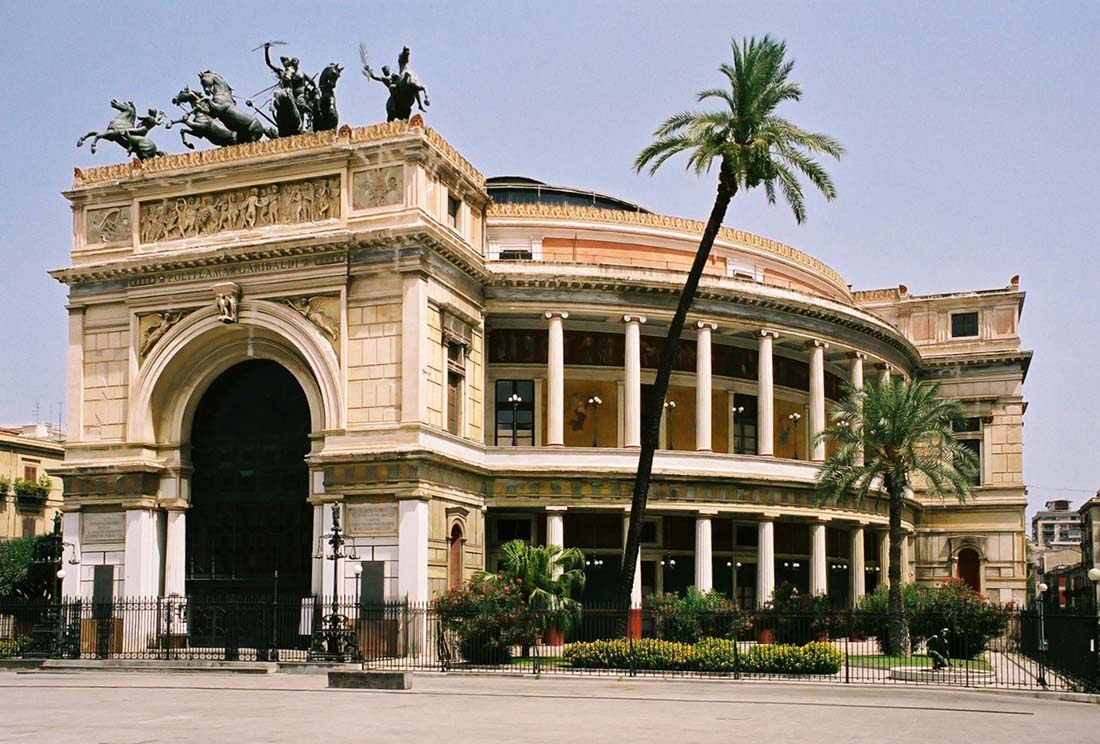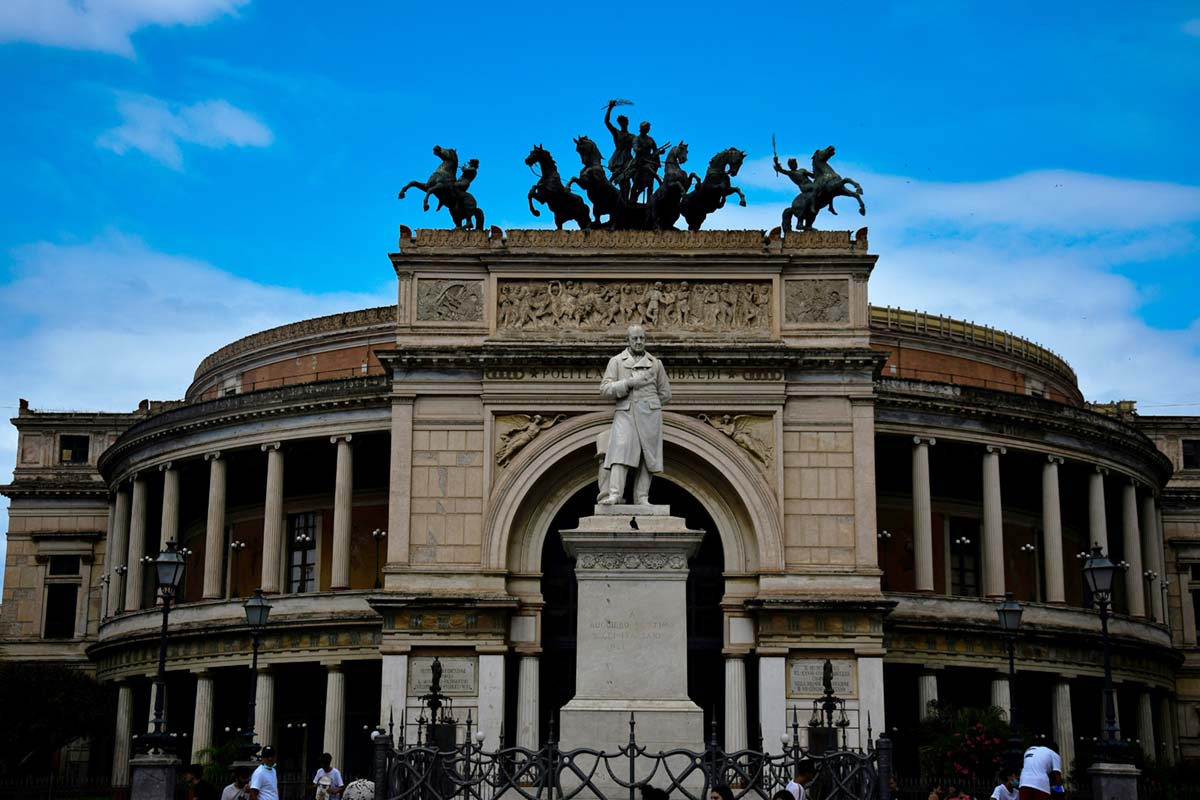
DESTINATION
Teatro Politeama Garibaldi
(SIB CONGRESS OPENING, September 10th)

In 1864 the municipality of Palermo launched an international competition for the construction of a monumental opera house (the Teatro Massimo) and, a year later, an internal competition for the construction of a diurnal multi-purpose theatre (hence the name “Politeama” from the Greek language).
The architectural project was assigned to Giuseppe Damiani Almeyda. The theatre would have to be built on the border of the monumental structure of Palermo, as an ideal point of reference of the city’s expansion. Therefore, unlike the “aristocratic” Teatro Massimo, the Politeama would have to house more popular shows (operetta, festivals, equestrian shows, etc.).
In 1864 the municipality of Palermo launched an international competition for the construction of a monumental opera house (the Teatro Massimo) and, aThen, it was decided to erect a large opencast amphitheatre at the beginning of Viale della Libertà. In 1865 the contract with the construction company Galland was signed, but the construction started only in 1867. A year later the project was modified because it was decided to transform the amphitheatre into a real theatrical house. In the meantime, the work slow down due to problems that have arisen between the municipality and the Galland company.
In 1869 the municipality decided to name the building after Gioachino Rossini, but later this intention was dismissed. On 7 June 1874 the theatre was inaugurated with the opera I Capuleti e i Montecchi of Vincenzo Bellini. However, the building wasn’t complete yet. During the following years the name of the building was simply “Teatro Municipale Politeama”. In 1882 Giuseppe Garibaldi died and the theatre was named after him.
Even though the covering had been made in 1877 by the Fonderia Oretea, the last interventions were completed in 1891, when Palermo hosted the Esposizione Nazionale. At that time dates back the official opening in the presence of King Umberto I of Italy and of Queen Margherita. On that occasion Francesco Tamagno was the protagonist of Giuseppe Verdi’s Otello.
Between 1910 and 2006 the foyer of the theatre was home of the Galleria d’arte moderna di Palermo. The Politeama is the headquarters of the Orchestra Sinfonica Siciliana since 2001.


